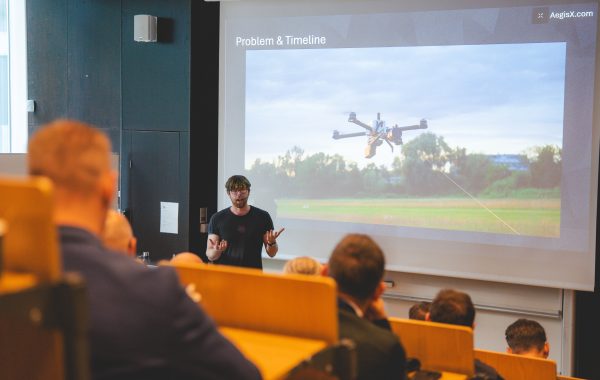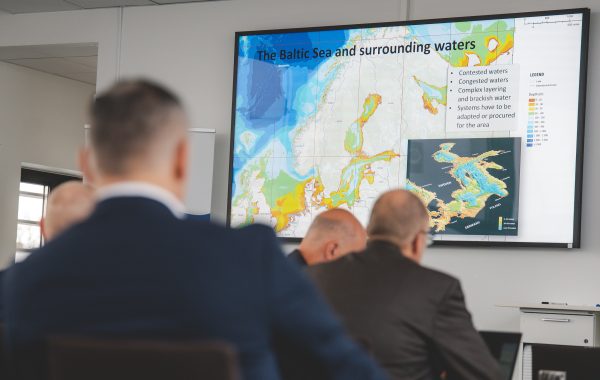Four student teams have been awarded development grants in the MTC Student Challenge 2025 – an initiative conducted in collaboration with FMV Test and Evaluation and Blekinge Institute of Technology (BTH). The challenge aims to engage students in solving real-world problems within maritime security. Now, four teams move forward with financial support to bring their ideas to life.
About the Challenge
The MTC Student Challenge is conducted in collaboration with FMV Test and Evaluation and BTH – Blekinge Institute of Technology, with the aim of connecting future engineers with current technical challenges in the defense sector.
The Swedish Defence Materiel Administration (FMV) defined four specific problem areas:
• Detecting and managing hostile drones
• Navigation without GNSS
• Protecting underwater infrastructure
• The oil is gone
Ten student teams, with a total of 15 ideas, were accepted into the challenge and had the opportunity to present their concepts to a jury consisting of experts from MTC, FMV, and BTH.
Recipients of Development Grants
SEK 75,000 – Primary Grant Recipients (presented at Marine Innovation Day)
Simon Lindqvist, Tobias Gustafsson, Viktor Fransson and Alexander Alfaro
Challenge: Managing hostile drones
An autonomous drone that can independently locate and intercept hostile vehicles using a camera and AI.
Emil Knutsson, Saif Kadahin and Nemo Bemo
Challenge: Managing hostile drones
A scalable sensor system based on automotive radar technology – a potential mass-deployable solution to protect critical infrastructure from drones.
SEK 50,000 – Grants for Further Development
Birk Brunell
Challenge: Managing hostile drones
Smartphones are transformed into drone sensors within an AI-powered network – enabling fast and cost-effective detection in the field.
Petter Eriksson, Amin Afzali and Philip Wollsén Ervius
Challenge: Navigation without GNSS
The solution is based on an AI-powered inertial navigation system (INS) that is trained using GNSS data under normal conditions but can calculate and update a vessel’s position using onboard sensors in the event of GNSS disruption. A robust and adaptive method for navigation in contested environments.
Next step: From idea to prototype
The grants give the teams the opportunity to further develop their solutions until September 2025. At that time, they will present their prototypes to representatives from the defense industry, FMV, and other stakeholders. The teams will also have the chance to showcase their projects at FMV’s upcoming Demo Week, where they will gain valuable experience and benefit from meaningful networking opportunities.
It is a unique opportunity to take a step from idea to reality – and to shape the future of defense with technology developed by the next generation of innovators.
MTC will follow the teams’ continued work throughout the year, and we look forward to sharing their progress as the projects evolve.


